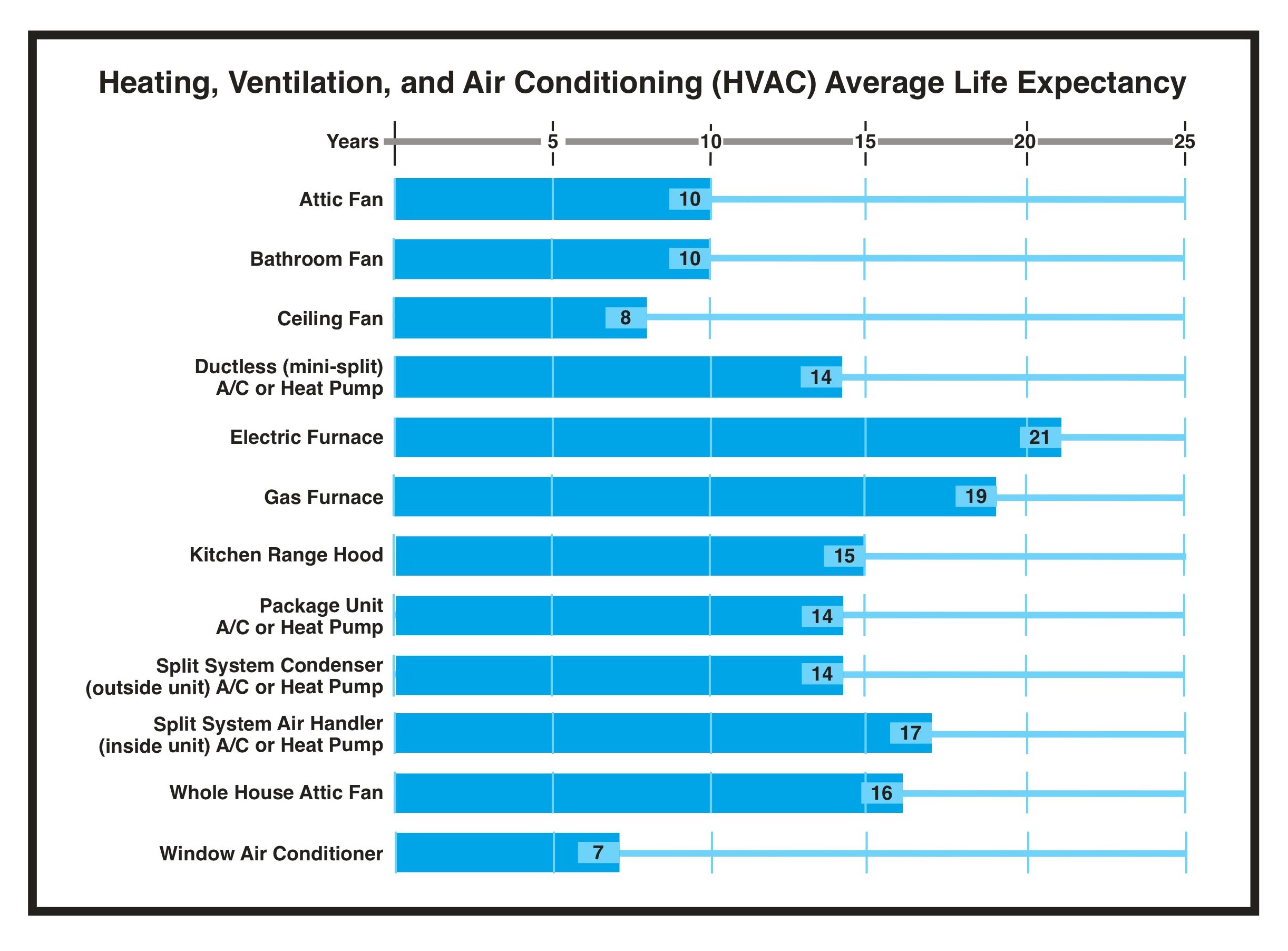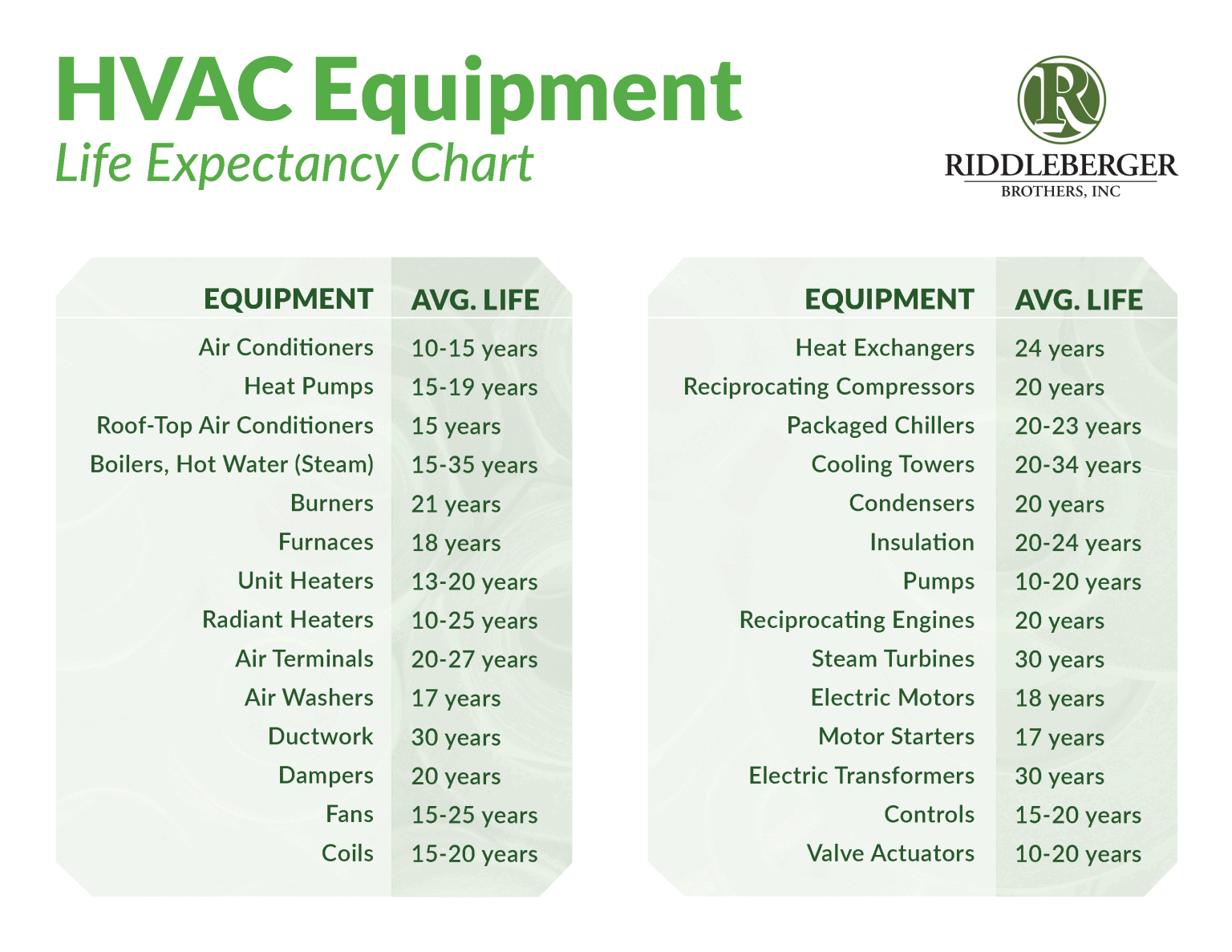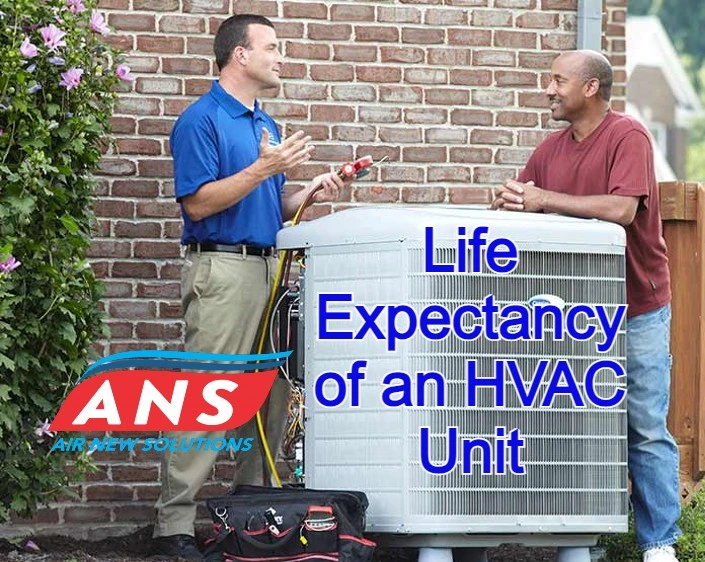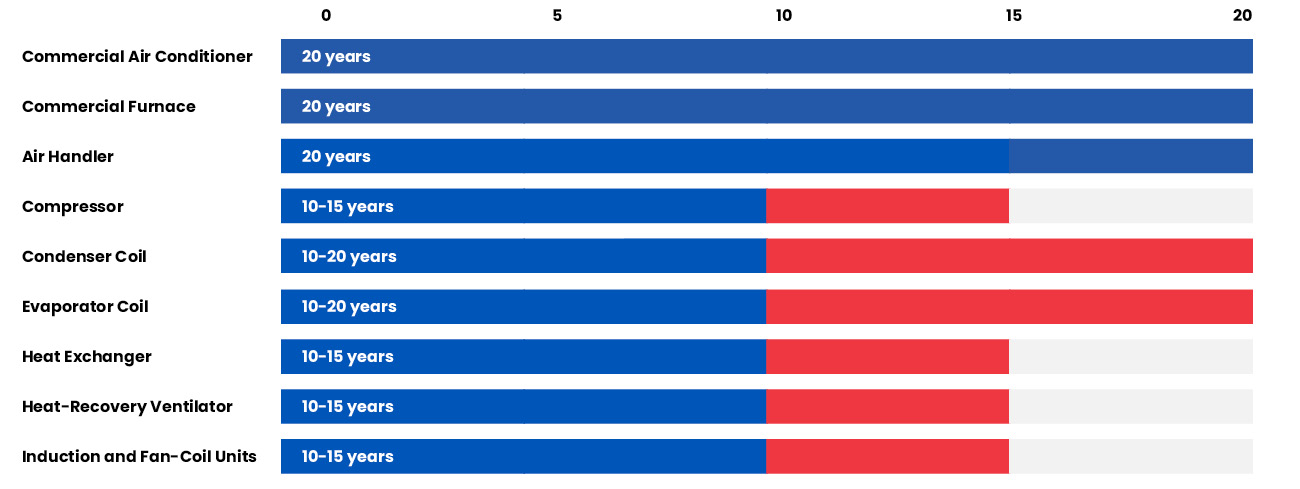Life Expectancy Of Air Conditioning Unit

How Long Will Your Air Conditioner Really Last? A Comprehensive Guide to AC Unit Lifespan
Replacing an air conditioning unit is a significant investment for any homeowner or property investor. Understanding the expected lifespan of your AC system is crucial for budgeting, planning future replacements, and ensuring you get the most out of your investment. This guide provides a comprehensive overview of factors affecting AC unit lifespan, common problems, maintenance tips, and signs it's time for a replacement.
What's the Average Lifespan of an AC Unit?
Generally, a well-maintained air conditioning unit can last between 15 and 20 years. However, this is just an average. Several factors can significantly impact the actual lifespan of your system.
Factors Affecting AC Unit Lifespan
Several key elements contribute to how long your air conditioner will effectively cool your home. Let's examine these closely:
- Climate: In regions with long, hot summers, AC units work harder and more frequently, potentially shortening their lifespan compared to units in milder climates.
- Usage: The more frequently and intensely you use your AC, the more wear and tear it experiences. Consistent, heavy use will naturally shorten its lifespan.
- Maintenance: Regular maintenance, including filter changes, coil cleaning, and professional servicing, is paramount to extending the life of your AC unit. Neglecting maintenance is a common reason for premature failure.
- Installation Quality: A poorly installed AC system will operate inefficiently from the start, placing extra stress on components and leading to early breakdowns.
- Unit Quality: The brand and model of your AC unit significantly impact its durability. Some manufacturers use higher-quality components and more robust designs, resulting in longer lifespans.
- Refrigerant Type: Older AC units often used R-22 refrigerant, which is now being phased out. Replacements using the more environmentally friendly R-410A are more common, and the system design affects longevity.
- Air Quality: Dusty or polluted air can clog filters and coils, reducing efficiency and increasing stress on the system.
Common Problems That Shorten AC Lifespan
Certain issues can significantly reduce the lifespan of your air conditioner. Being aware of these potential problems can help you take preventative measures.
- Refrigerant Leaks: Leaks reduce cooling efficiency and can damage the compressor.
- Compressor Failure: The compressor is the heart of the AC unit. Failure often requires costly repairs or complete unit replacement.
- Dirty Coils: Dirty evaporator and condenser coils reduce heat transfer efficiency and can cause the system to overheat.
- Fan Motor Failure: Malfunctioning fan motors can prevent proper airflow, leading to overheating and compressor damage.
- Electrical Issues: Faulty wiring, capacitors, or other electrical components can cause system malfunctions and premature failure.
- Frozen Evaporator Coils: Restricted airflow (due to dirty filters) can cause the evaporator coil to freeze, damaging the system.
Extending Your AC Unit's Life: Essential Maintenance Tips
Proper maintenance is the key to maximizing the lifespan of your air conditioner. Follow these essential maintenance tips to keep your system running smoothly for years to come:
- Change Air Filters Regularly: Replace or clean your air filters every 1-3 months, or more frequently if you have pets or allergies. Dirty filters restrict airflow and force your system to work harder.
- Clean Coils Annually: Clean the evaporator and condenser coils at least once a year. You can use a coil cleaner or hire a professional for this task.
- Schedule Professional Servicing: Have your AC unit professionally inspected and serviced annually by a qualified HVAC technician. They can identify and address potential problems before they escalate.
- Keep the Outdoor Unit Clear: Ensure the outdoor unit is free from debris, vegetation, and obstructions that can restrict airflow.
- Check and Clean Drain Lines: Clogged drain lines can cause water damage and promote mold growth. Regularly check and clean the drain lines to ensure proper drainage.
- Use a Programmable Thermostat: A programmable thermostat allows you to set temperature schedules that optimize energy efficiency and reduce unnecessary AC usage.
Signs It's Time to Replace Your AC Unit
Even with diligent maintenance, your AC unit will eventually reach the end of its lifespan. Be aware of these signs that indicate it's time for a replacement:
- Age: If your AC unit is 15-20 years old, it's likely nearing the end of its lifespan, even if it's still functioning.
- Frequent Repairs: If you're constantly calling for repairs, it may be more cost-effective to replace the unit.
- Rising Energy Bills: A sudden increase in energy bills could indicate that your AC unit is losing efficiency.
- Inconsistent Cooling: If your AC unit struggles to maintain a consistent temperature throughout your home, it may be failing.
- Strange Noises: Unusual noises, such as banging, rattling, or grinding, can indicate serious mechanical problems.
- Outdated Refrigerant: If your unit uses R-22 refrigerant and requires a recharge, it may be more economical to replace it with a system that uses the more environmentally friendly R-410A.
Understanding AC Unit Ratings: SEER, AFUE, and HSPF
When choosing a new AC unit, it's essential to understand the different efficiency ratings:
- SEER (Seasonal Energy Efficiency Ratio): Measures the cooling efficiency of an AC unit. The higher the SEER rating, the more efficient the unit. Current minimum SEER standards are 14-15 depending on the region, with some units reaching SEER ratings of 25 or higher.
- AFUE (Annual Fuel Utilization Efficiency): This rating applies to furnaces, not AC units directly, but is relevant if you're considering a heat pump system. It measures the heating efficiency of the furnace. The higher the AFUE rating, the more efficient the furnace.
- HSPF (Heating Seasonal Performance Factor): This rating applies to heat pumps and measures their heating efficiency. The higher the HSPF rating, the more efficient the heat pump.
Investing in a high-efficiency AC unit with a high SEER rating can significantly reduce your energy bills over the lifespan of the system.
Comparing Popular AC Brands and Models
Several reputable brands offer high-quality and efficient AC units. Here are a few popular options:
- Carrier: Known for their reliability and innovation, Carrier offers a wide range of AC units with high SEER ratings. Their Infinity Series is particularly noteworthy.
- Trane: Trane is another well-regarded brand known for its durable and efficient AC systems. The Trane XV20i is a popular high-efficiency model.
- Lennox: Lennox offers a variety of AC units, including ultra-efficient models with SEER ratings exceeding 20. The Lennox SL28XCV is an example of their high-end offerings.
- Goodman: Goodman provides more budget-friendly options without sacrificing reliability. They offer a range of AC units with decent SEER ratings.
- Rheem: Rheem provides efficient and innovative products, including smart HVAC systems with advanced features.
When comparing brands and models, consider factors such as SEER rating, warranty, features, and price.
Warranties: What to Look For
A comprehensive warranty provides peace of mind and protects your investment. Look for AC units with at least a 10-year warranty on the compressor and parts. Some manufacturers offer extended warranties for added protection. Be sure to understand the terms and conditions of the warranty before making a purchase.
Cost Considerations: Initial Investment vs. Long-Term Savings
The initial cost of an AC unit is a significant factor, but it's essential to consider the long-term savings. High-efficiency units may have a higher upfront cost, but they can save you money on energy bills over the lifespan of the system. Calculate the payback period based on your energy consumption and compare the total cost of ownership for different models. Also, consider any rebates or tax incentives available for energy-efficient appliances.
Professional Installation: Why It Matters
Proper installation is crucial for the performance and lifespan of your AC unit. Hire a licensed and experienced HVAC contractor to ensure the system is installed correctly. A professional installer will properly size the unit, connect ductwork, charge the refrigerant, and test the system for optimal performance. A bad installation can void the warranty and significantly shorten the lifespan of your AC unit.
Conclusion: Making the Right Choice for Your Needs
Choosing a new air conditioning unit is a complex decision. By understanding the factors affecting AC unit lifespan, common problems, maintenance tips, and efficiency ratings, you can make an informed choice that meets your needs and budget. Consider your climate, usage patterns, and long-term savings goals when selecting a new AC system. And remember, proper installation and regular maintenance are essential for maximizing the lifespan and performance of your investment. Consult with a qualified HVAC professional to determine the best solution for your home or property.










